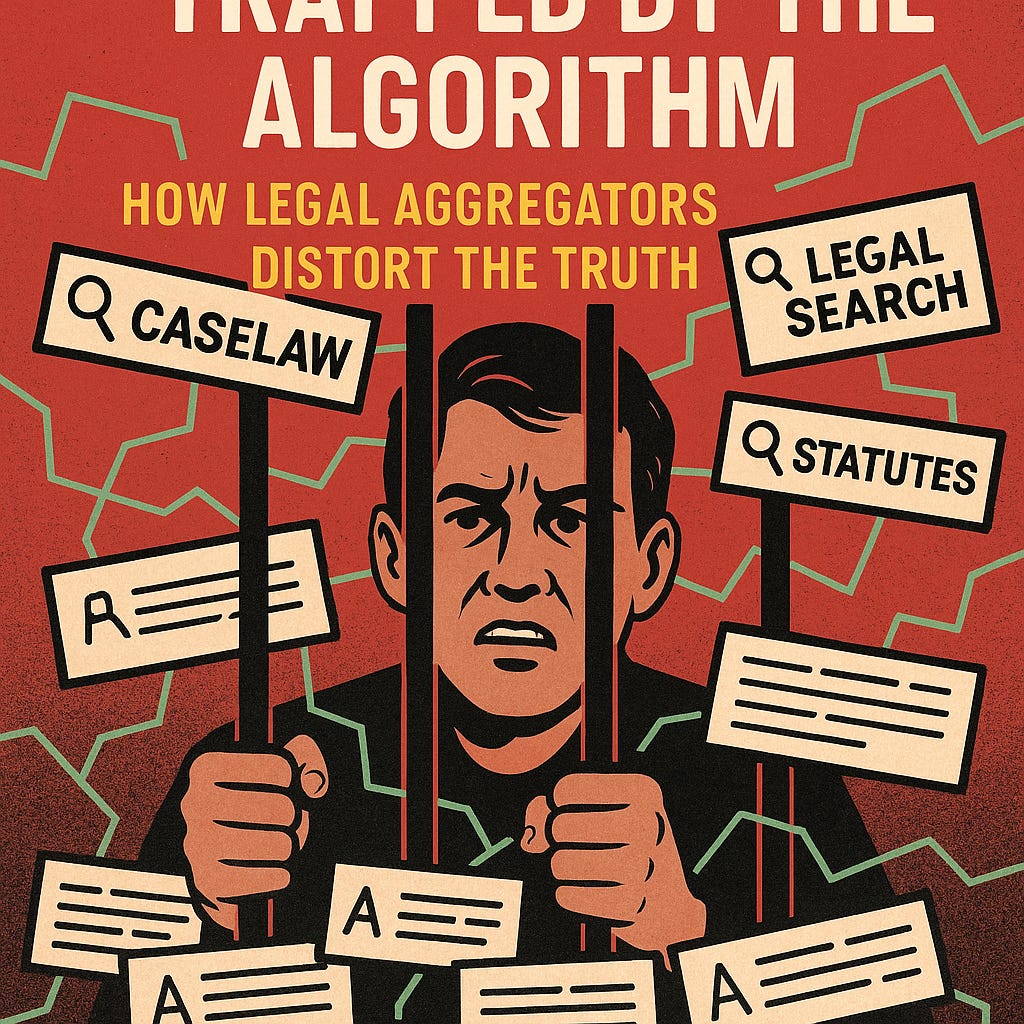Trapped by the Algorithm: How Legal Aggregators Distort the Truth
By Rafael Benavente
Reputation in the Digital Age: When Algorithms Misrepresent the Trut
h
I. Introduction: Search Results Are Not Reality
In today’s digital landscape, a single court document—accurate or not—can follow a person for years. Even after legal matters are resolved or dismissed, search engines often continue to serve outdated or misleading results. Worse yet, algorithm-driven platforms like Trellis Law and UniCourt aggregate these public records without nuance, context, or the full story.
As someone who has worked in real estate, finance, and business consulting, I’ve seen firsthand how these digital artifacts can distort reputations. In many cases, these documents do not reflect guilt, wrongdoing, or the full circumstances behind a legal filing. They simply exist—and that’s enough to damage trust.
So how did we arrive at a point where a scraped court PDF can carry more weight than decades of hard work?
II. The Rise of Legal Aggregators: Public, But Not Always Honest
Websites like Trellis, UniCourt, and Justia began with a noble idea: make public legal data accessible. But over time, they evolved into high-ranking SEO platforms that profit from traffic—not accuracy. They display court documents stripped of legal outcomes, settlements, or dismissals.
For example, a simple motion in a civil case—even if denied or withdrawn—can be preserved forever in Google’s index. The person involved may have done nothing wrong, yet a casual observer assumes guilt based on the presence of a docket. These records rarely include critical updates, such as:
Voluntary dismissals
Lack of adjudication
Resolved disputes
Settlements without admission of liability
The result? A digital mirage that shapes perception more than truth.
III. Context Is Everything: What the Aggregators Leave Out
Let me offer a hypothetical example based on real patterns I've seen. Suppose an investor files a countersuit in response to a breach of contract. Even if the case is later settled amicably, the initial complaint and reply might live forever online. Trellis Law might list "Benavente v. Doe" with a misleading headline—yet never mention the matter was resolved, dismissed, or even that the filing was procedural.
These platforms rarely display what truly matters: context, outcome, or intent. More dangerously, they may list individuals as "defendants" when they are, in fact, only affiliated with a business entity involved in a dispute.
IV. Google’s Role: How Algorithms Cement Digital Misunderstandings
Search engines love fresh content and structured data—which Trellis and others provide in abundance. These sites use technical SEO tricks like schema markup, internal linking, and keyword stuffing to rank higher than the truth.
Meanwhile, the affected individual has little recourse. Unless you're a Fortune 500 CEO or a celebrity with a PR team, it’s extremely difficult to correct the record. Google doesn’t weigh legal nuance; it ranks what’s optimized.
And that’s why it’s crucial for professionals, entrepreneurs, and private citizens alike to be proactive in managing their digital presence.
V. The Real-Life Consequences of Online Legal Footprints
Here’s the reality many don’t see:
Mortgage and financing delays due to outdated litigation mentions
Business partners reconsidering deals
Clients lost over a misunderstood document
Media citing legal aggregators without verifying facts
In an age where your search results are your résumé, reputational damage can cost far more than legal fees.
But there are solutions—and that’s why I’m writing this.
VI. Strategies for Reclaiming Your Digital Reputation
If you’ve ever had your name or business tied to a legal filing—even wrongly—you’re not alone. Here’s what I’ve learned and what you can do:
1. Publish Your Side
Start blogging. Platforms like Substack, Medium, and WordPress offer free tools to tell your story in your words. SEO rewards consistent content—and so does the public.
✅ This blog you're reading now is part of that effort.
2. Use Fact-Based Narratives
If legal action was resolved, say so. If your role was limited, clarify it. Do not be afraid to correct public perception with facts and integrity.
3. Build Authoritative Backlinks
Cross-link between articles and reference expert sources. This helps push down negative or outdated links and improves your ranking with Google.
4. Engage in Community Building
Host webinars, write newsletters, publish on LinkedIn. If you’re adding value to your industry or community, the algorithms will follow.
VII. The Ethical Question: Should Public Records Be This Public?
Legal transparency matters. But so does fairness. When websites build businesses on perpetuating incomplete records, we have to ask:
Is this public service or profit over people?
There’s a major difference between transparency and exploitation. And it’s time to create a better standard—one that distinguishes between a court filing and a conviction, between a dispute and a wrongdoing.
VIII. What I Stand For
As Rafael Benavente, I’ve worked hard across industries—from managing distressed real estate to consulting entrepreneurs on strategic financial moves. Legal complexity is part of business. Disputes arise. But so does resolution.
I stand for due process, facts, and fair digital representation.
If you’ve seen my name linked to a legal document online, know this: context matters. Truth is layered. And I will always use my platform to speak openly, challenge assumptions, and advocate for better digital ethics.
IX. Closing Thoughts: Reclaiming Narrative in the Noise
We live in a world of headlines, summaries, and Google snippets. But we shouldn’t forget the long view. Your reputation is not built—or broken—by a single line of code. It’s the result of your integrity, your work, and your voice.
Let’s reclaim that voice.

